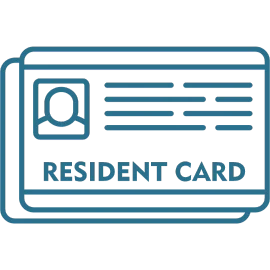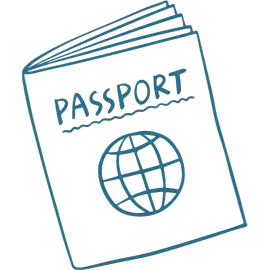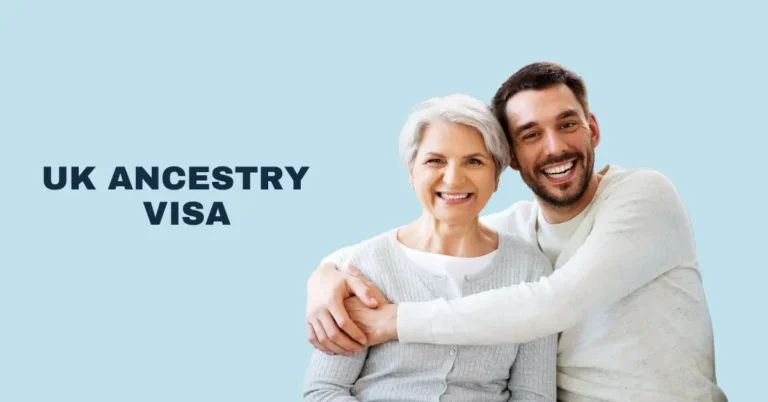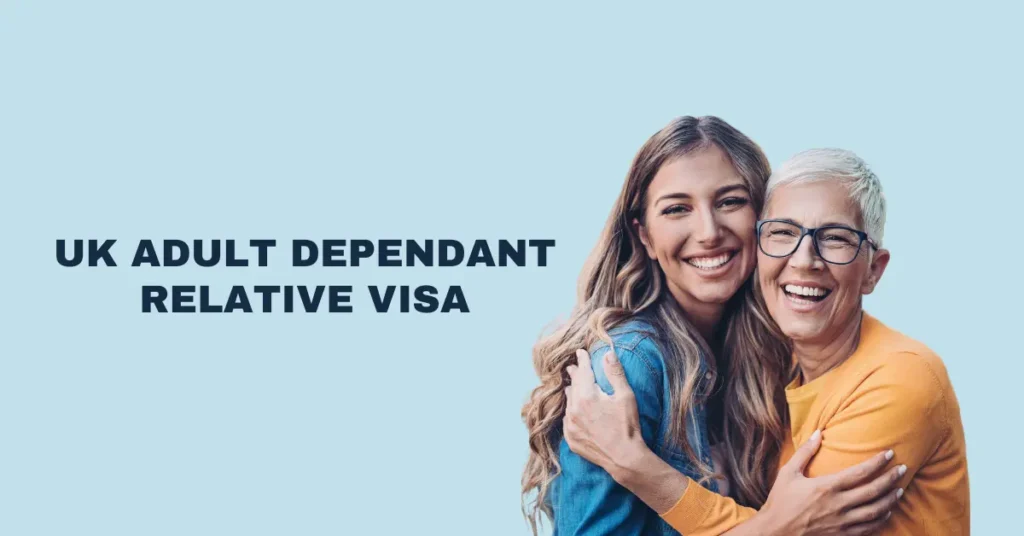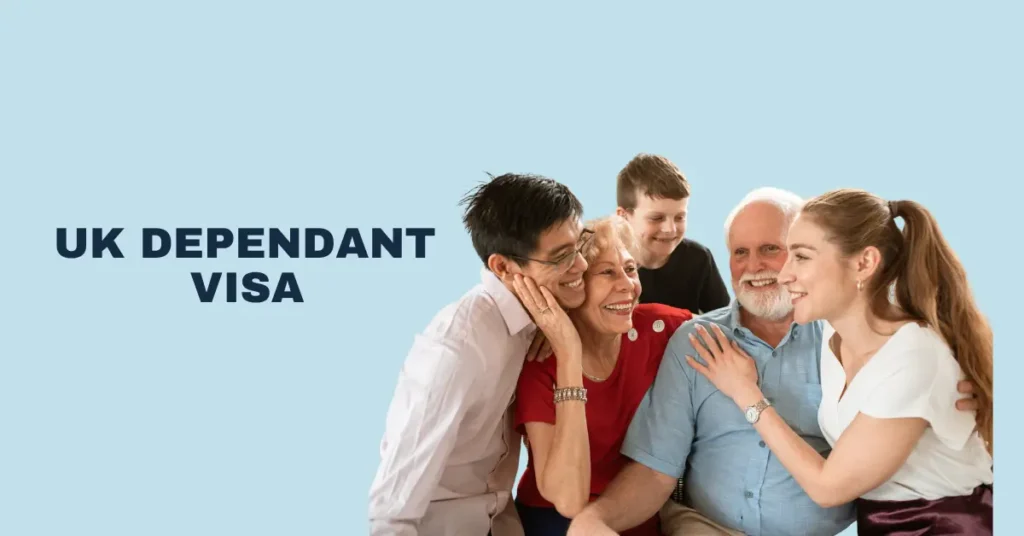What constitutes a UK Ancestry visa?
The UK Ancestry visa caters to Commonwealth and British Overseas citizens and nationals who have a grandparent born in the UK (or the Channel Islands or the Isle of Man). Those granted this visa are entitled to reside, work, and pursue studies in the UK, and have the option to bring their dependent family members along. Following approval, the UK Ancestry visa permits holders to stay in the UK initially for a period of 5 years. Subsequently, after the initial 5-year span, Ancestry visa holders are eligible to apply for indefinite leave to remain (also recognised as ILR or permanent settlement).
UK Ancestry Visa Eligibility Criteria
To qualify for a UK Ancestry Visa, applicants must meet the following criteria:
- Age Requirement:
- Applicants must be 17 years old or above.
- Citizenship Status:
- Eligible candidates include Commonwealth citizens, British overseas citizens, British overseas territories citizens, British nationals (overseas), or citizens of Zimbabwe.
- Application Location:
- The application must be submitted from outside the UK.
- Ancestral Connection:
- Applicants must provide evidence that at least one of their grandparents was born in the UK, the Channel Islands, or the Isle of Man.
- Work Intentions:
- There should be a plan to work in the UK.
- Financial Capability:
- Applicants must demonstrate the ability to support themselves and any dependants financially, without relying on public funds.
Commonwealth Countries
Commonwealth countries include the following:
Botswana, Cameroon, Gambia, Ghana, Kenya, Kingdom of Eswatini, Lesotho, Malawi, Mauritius, Mozambique, Namibia, Nigeria, Rwanda, Seychelles, Sierra Leone, South Africa, Uganda, United Republic of Tanzania, Zambia, Bangladesh, Brunei Darussalam, India, Malaysia, Maldives, Pakistan, Singapore, Sri Lanka, Antigua and Barbuda, Bahamas, Barbados, Belize, Canada, Dominica, Grenada, Guyana, Jamaica, Saint Lucia, St Kitts and Nevis, St Vincent and The Grenadines, Trinidad and Tobago, Cyprus, Malta, United Kingdom, Pacific, Australia, Fiji, Kiribati, Nauru, New Zealand, Papua New Guinea, Samoa, Solomon Islands, Tonga, Tuvalu, Vanuatu.
UK Ancestry Grandparent Requirement
To meet the UK Ancestry Visa criteria, applicants must prove that at least one of their grandparents was born in one of the following:
- On a British-registered aircraft or ship
- In the United Kingdom, the Isle of Man, or the Channel Islands
- Prior to March 31, 1922, in what is now known as the Republic of Ireland
Applicants can also apply if they or their parents (through whom ancestry is claimed) are adopted, provided legal adoption evidence is included. Notably, applying through step-parents is not permissible.
UK Ancestry Visa Financial Requirement
As per Home Office guidance, there is no fixed amount for funds, but applicants must demonstrate the ability to sustain themselves and accompanying family members without relying on public funds.
Dependants of a Person with a UK Ancestry Visa
With an Ancestry visa, individuals have the option to bring eligible family members to the UK. According to UK immigration rules, a dependant is defined as the partner or child of the main applicant. It’s important to note that only children below the age of 18 are eligible to apply as dependants.
How to Apply for a UK Ancestry Visa
The application process for the UK Ancestry visa involves several detailed steps:
- Complete the Online Ancestry Visa Application Form:
- Fill out the Ancestry visa application form online before your planned travel to the UK. The application window opens three months before your intended travel date. Each dependent must submit a separate application to join you in the UK.
- Upload Required Supporting Documents:
- Upload any necessary documents to substantiate your case. The specific documents needed will be communicated to you. Examples include:
- Your current passport or another suitable travel document
- Your full birth certificate
- The full birth certificates of your parent and grandparent on whom your UK Ancestry visa claim is based
- Evidence of your plan to work in the UK, such as a job offer or a business plan if self-employed
- Evidence demonstrating your ability to support yourself and your dependant family members in the UK, including a bank statement dated within 31 days of submitting your application
- If there have been name changes in your parents’ or grandparents’ records since birth, provide suitable evidence such as a marriage certificate or a deed poll
- Legal adoption papers if your parents were adopted
- TB test certificate (dependent on your country of origin)
- Your marriage certificate or civil partnership document if your spouse or civil partner is joining you
- Upload any necessary documents to substantiate your case. The specific documents needed will be communicated to you. Examples include:
- Payment of Application Fees:
- Pay the applicable application fees, healthcare surcharge, and BRP fee. Detailed information on fees is provided below.
- Schedule an Appointment with a Visa Application Centre:
- Book an appointment with a visa application centre in your country of residence. This appointment is crucial for enrolling your biometrics (photo and fingerprints), which are used to create your biometric residence permit (BRP).
You can expect a decision on your application within 3 weeks.
Required Documents for UK Ancestry Visa
As part of the UK Ancestry visa application process, you will need to provide a comprehensive set of documents and evidence to support your case. The specific documents required will be communicated to you, and these may include:
- Your current passport or another suitable travel document
- Your full birth certificate
- The full birth certificates of your parent and grandparent on whom your UK Ancestry visa claim is based
- Evidence of your plan to work in the UK, such as a job offer or a business plan if self-employed
- Evidence demonstrating your ability to support yourself and your dependant family members in the UK, including a bank statement dated within 31 days of submitting your application
- If there have been name changes in your parents’ or grandparents’ records since birth, provide suitable evidence such as a marriage certificate or a deed poll
- Legal adoption papers if your parents were adopted
- TB test certificate (dependent on your country of origin)
- Your marriage certificate or civil partnership document if your spouse or civil partner is joining you
Note: The required documents may vary based on individual circumstances. If you encounter challenges obtaining specific evidence for your UK Ancestry visa application, our immigration solicitors are available to assist. Contact us at +44 (0) 333 577 0034 or via email at mail@jpsimmigration.com.
Costs Associated with the UK Ancestry Visa
Securing the British Ancestry visa involves a series of fees that applicants should be aware of:
- Application Fee:
- The initial application fee for the British Ancestry visa stands at £531.
- NHS Healthcare Surcharge:
- In addition, applicants are required to pay the NHS healthcare surcharge upfront. Currently set at £624 per year for each adult and £470 per year for individuals under 18, this surcharge facilitates access to the UK’s National Health Service for both Ancestry visa holders and their dependant family members.
- Biometric Residence Permit (BRP) Fee:
- A biometric residence permit (BRP) fee of £19.20 is also applicable during the visa application process.
- Fast Track Options:
- Depending on the services offered at the local visa application centre, applicants have the option to expedite the processing of their application at an additional cost. The priority service, providing a decision within 5 working days, incurs a fee of £500. For those seeking an even faster resolution by the end of the next working day, the super-priority service is available at a cost of £800. This stands in contrast to the standard 3-week processing time for the regular application process.
Navigating these costs is essential for a comprehensive understanding of the financial commitments associated with obtaining the UK Ancestry Visa.
Activities Permitted and Restricted on a UK Ancestry Visa
Permitted Activities: When holding a British Ancestry visa, you enjoy certain privileges, including:
- Employment Freedom:
- You have the liberty to work for any employer and in any capacity.
- Study Opportunities:
- You can pursue educational endeavours and engage in studies.
- Family Reunification:
- The visa allows you to bring your immediate family members to join you in the UK.
Restricted Activities: Conversely, there are specific activities that are not permitted:
- Ineligibility for Visa Switching:
- You cannot switch to a British Ancestry visa if you are already in the UK on a different type of visa.
- Inability to Access Public Funds:
- Access to public funds, such as welfare benefits, is not allowed under this visa.
Duration Outside the UK on Ancestry Visa: If you intend to apply for Indefinite Leave to Remain (ILR), a meticulous consideration of your time spent outside the UK is crucial. The requirements stipulate that you must have been in the UK for a continuous five-year period, with no more than 180 days spent outside the country in any given year. Additionally, it’s essential to uphold the genuine intention to work while in the UK. Prolonged periods spent abroad may raise doubts about this intention and potentially jeopardise the status of your visa.
UK Ancestry Visa Extension/Renewal Procedure
If you plan to extend or renew your UK Ancestry visa, an online application is required before your current leave expires, particularly if your intention is to stay beyond the initial 5-year period. This renewal option is designed for individuals who either cannot or choose not to apply for Indefinite Leave to Remain following 5 years of continuous residency in the UK, which may be influenced by factors such as unspent criminal convictions.
Key Steps in Extending Your Ancestry Visa:
- Timely Application:
- Begin the renewal process before your existing visa expires to ensure continuity.
- Inclusion of Dependent Family Members:
- You have the option to include your dependent family members in the application if they are also seeking an extension.
- Multiple Extensions Permissible:
- The governing rules specify that the Ancestry visa in the UK can be extended multiple times, contingent upon the ongoing fulfilment of eligibility criteria.
- Reasons for Choosing Extension Over Indefinite Leave to Remain:
- Individuals may opt for visa extensions over pursuing Indefinite Leave to Remain, influenced by various factors, including the presence of unspent criminal convictions.
Application Costs:
- The fee for extending your Ancestry visa is £1,048.
- In addition to the visa extension fee, applicants are required to pay the NHS healthcare surcharge to ensure access to the UK’s National Health Service.
Navigating the Path from UK Ancestry Visa to ILR and British Citizenship
Embarking on the journey from a UK Ancestry Visa to Indefinite Leave to Remain (ILR) and eventually British citizenship involves specific steps and considerations:
Transition to ILR
After five years of continuous residence under the Ancestry Visa, individuals have the opportunity to apply for Indefinite Leave to Remain (ILR). It’s crucial to understand that ILR isn’t automatically granted; instead, a thorough ILR application must be submitted. Upon completing at least 12 months in the UK following ILR acquisition, the path to British citizenship becomes accessible.
ILR Application Details
The ILR application is an online process, with the recommendation not to apply more than 28 days before the current visa expires. Concurrently, scheduling an appointment with the local UKVCAS office is necessary for the capture of essential biometric information, including photos, signatures, and fingerprints.
Qualification Criteria for ILR: Eligibility for ILR requires demonstrating several key factors, including:
- Sufficient financial resources for self and dependants.
- Intent to actively engage in work within the UK.
- Retention of Commonwealth citizenship.
- Successful completion of the Knowledge of Language and Life in the UK test.
- Fulfilment of English language requirements, potentially necessitating a CEFR English qualification with at least level B1 in speaking and listening.
Active Engagement During Ancestry Visa Years
Submission of your ILR application necessitates providing evidence of consistent employment or genuine efforts in seeking employment throughout the five-year Ancestry visa period in the UK.
Challenges and Refusals
While pursuing the UK Ancestry Visa route, applications may face refusal for various reasons, such as insufficient evidence, criminal convictions, fee discrepancies, or non-responsive behaviour to information requests from UKVI. In case of refusal, individuals can explore options like administrative review, submitting a new application, or considering alternative visa categories.
Our immigration lawyers stand ready to offer personalised advice and representation tailored to your circumstances. For detailed guidance and support, contact us at +44 (0) 333 577 0034 or via email at mail@jpsimmigration.com.





























